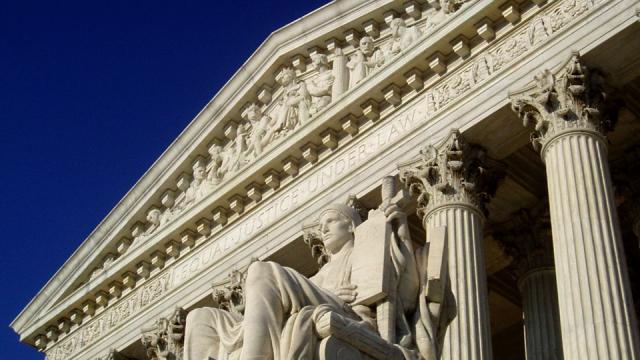
The U.S. Supreme Court is going to hear a campaign finance case that could do away with the contribution limits that limit rich people's influence over politics.
Currently, federal law only lets individuals give $2,600 to any one candidate during a single election.
On top of that limit, people can only give $123,000 to candidates, political action committees, and parties over a two-year period.
Shaun McCutcheon, an Alabama Republican, is only challenging aggregate, two-year caps on direct donations to parties or candidates.
But this case could jeopardize all campaign finance limits – including the $2,600 cap on contributions to individual candidates, according to one election law expert.
"I suppose the worst-case scenario is that ... the court goes past the questions presented and tackles a more fundamental question – in this case, the Constitutionality of contribution limits," Columbia Law School professor Richard Briffault told BI in an email message.
"Justices Scalia and Thomas have expressed the view that contribution limits are unconstitutional, and Justice Kennedy has expressed some discomfort with them," he added.
Kennedy's reluctance to support campaign finance limits could be good news for McCutcheon, since that justice is a swing voter who usually sides with the majority (with the huge exception of Obamacare).
Slate's David Weigel still seemed skeptical that McCutcheon's crusade against aggregate limits could let billionaires buy elections "more than they currently do."
He pointed out that appeals court judge Janice Rogers Brown, a libertarian, wrote the opinion that shot McCutcheon down and spurred him to go to the nation's highest court.
"Even she decided that 'the aggregate limits are justified,'" Weigel writes.
If the high court sides with McCutcheon, it would also have to reverse its 1976 opinion in Buckley v. Valeo, which limited campaign contributions.
But, as SCOTUSBlog points out, the Supreme Court's campaign finance opinions aren't written in stone.
"The current Supreme Court has shown in recent years that it is not averse to the idea of reconsidering some of its most important rulings on campaign finance, as it did rather spectacularly in 2010, when it issued the hotly controversial decision in Citizens United v. FEC," SCOTUSBlog's Lyle Denniston points out.
The Supreme Court found in Citizens United that corporations can spend as much as they want on political campaigns as long as they didn't give money directly to candidates.
In the McCutcheon case, the Supreme Court probably won't take the radical step of declaring all limits on campaign contributions unconstitutional, according to Briffault, the Columbia law professor.
But the case will give the court its first chance to loosen the limits since 2010. Elected officials, and those who fund their campaigns, will likely be watching very closely.
3 WAYS TO SHOW YOUR SUPPORT
- Log in to post comments















